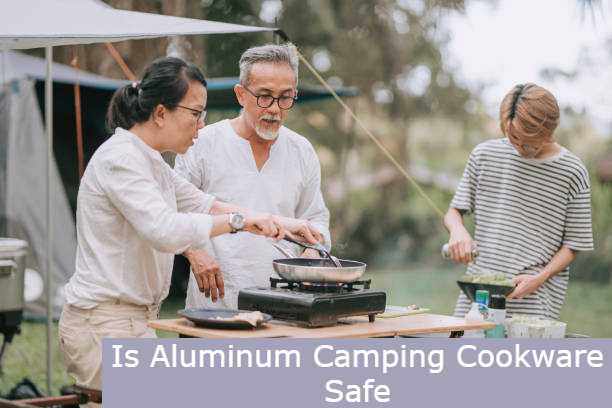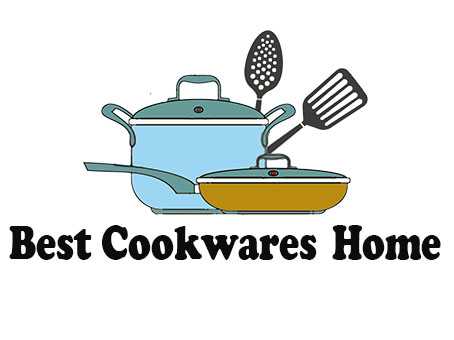
Aluminum is a lightweight, sturdy, and inexpensive metal that has been used extensively in the manufacture of cookware.
Whether it is camping or your weekly cooking, you are likely to cook food that has some sort of acidic ingredient in it. Pots and pans are not created equally, especially when it comes to metals. Aluminum is highly reactive with acids at high temperatures so you will want to stay away from it if you are cooking acidic foods.
Aluminum has excellent thermal conductivity the highest of any metal. This characteristic enables aluminum cookware to heat food quickly and evenly, without hot spots, so cooking time is reduced. Most campers use aluminum cookware for their cooking needs while camping. Aluminum is also light in weight so it is very comfortable for lifting and moving pots on the stovetop.
Is Aluminum Camping Cookware Safe To Use – Best Suggestions
Since aluminum is a very reactive metal, it will easily react with any acidic food that you add to the pan. This reaction can cause serious health issues. The acid in most foods will eat away at the aluminum cookware, causing your meal to have an unpleasant metallic taste and it can be potentially harmful to ingest this metal into your body. Aluminum cookware can also break down and dissolve into your food.
Campers consider Aluminum the best cooking material as it is light in weight, inexpensive, and readily available. The problem with using an aluminum pan or pot is that excess heat may cause a toxic reaction to take place between the metal and the food. The fumes are released into the air and are poisonous. It’s difficult to impossible to know for certain whether or not your cookware is safe, but there are some guidelines you can follow that will help you make a good decision.
Aluminum pans are often made of anodized aluminum, which is aluminum that has been treated with high temperatures to increase its resistance to corrosion. The treatment forms a hard surface on the outside of the metal composed of alumina-based compounds.
A pan’s anodized coating is not considered toxic, so it will not pose any health risk when cooking food in it.
Another thing to look for is the color of your cookware. If it’s silver, then you’re probably fine using it, but if you purchase black or blue anodized aluminum (which often sells for a lower price), then there is cause for concern. These colors are created through different processes that often use toxic materials, such as nickel and chromium.
If you’re looking for safe, lightweight aluminum cookware that’s also relatively inexpensive, then your best choice is to look at pots that are made from tri-ply clad aluminum or stainless steel. Some people prefer the simplicity of using an uncovered saucepan over a frying pan for cooking acidic foods, but for most campers, this isn’t a good idea.
The ways aluminum can alter the appearance and taste of your food
Here are some ways aluminum can alter the appearance and taste of your food.
1. Aluminum cookware reacts with acidic foods, such as tomato sauce or lemon. The acid in these foods will cause the aluminum to give them an undesirable taste and may even cause indigestion.
2. Uncoated aluminum pots often have hot spots along their sides so your food cooks unevenly. The hotter sections of the pot will darken your food while the center remains pale.
3. Aluminum reacts chemically with salt and lemon, turning them black on the bottom of the pan.
4. Aluminum cookware distributes heat unevenly – especially on glass stovetops – which can scorch some foods.
5. Uncoated aluminum cookware can emit fumes that aren’t healthy to breathe.
6. If you put aluminum pans in the dishwasher, they will pit and rust. Aluminum has a soft surface that can be damaged by scrubbing or sharp utensils.
7. Cooking acidic foods in aluminum pots may cause you to ingest trace amounts of metal into your body, which is unhealthy.
Read More: How to use properly stainless steel cookware
Other Considerations About Aluminum Camping Cookware
Aluminum cookware has many advantages. It’s lightweight, inexpensive, easy to use, and clean. The majority of camping pots are made from aluminum, but they’re rarely coated with any type of protective material – which makes them reactive.
If you’re cooking meals that don’t include acidic ingredients like tomatoes or lemon, then this isn’t much of a problem. On the other hand, if you’re planning to cook foods that are acidic or salty, then aluminum cookware is something you’ll want to avoid.
Choosing not to use an aluminum pan doesn’t mean you have to spend a fortune on non-reactive pots and pans. You can find reasonably priced stainless steel or tri-ply clad cookware that’s both safe and durable. Unlike aluminum, these pans distribute heat evenly so your food cooks more uniformly.
Storing aluminum cookware is another consideration you’ll have to make before heading out on your next camping trip. Pans with no protective coating will pit if they are stored in damp conditions – which means they aren’t a good choice for storing in your camping gear.
If you choose to use aluminum pans when you’re camping, it’s a good idea to store them in the trunk of your car so they stay dry and clean.
Final Thoughts
It’s always a good idea to use safe cooking equipment while you’re camping, especially if you have children. Aluminum cookware that has been anodized with some type of protective coating is considered safe, but it shouldn’t be used with acidic ingredients.
If you choose not to cook with aluminum camping cookware, then look at some of the other options on the market that are safe and affordable.
Choosing aluminum camping cookware for the sake of affordability is fine if that’s what you want; just make sure you prepare your meals using non-reactive ingredients.
Related Post:
Is it bad to use Aluminium Cookware

Hi, Welcome to our Blog. We are a team of Professional Blogger and expert in Cookware, Kitchen Appliances. We Work for the latest Reviews for Cookware, Kitchen Appliances. You can give us your kind Suggestions for improvements of Blogs, Thank You
